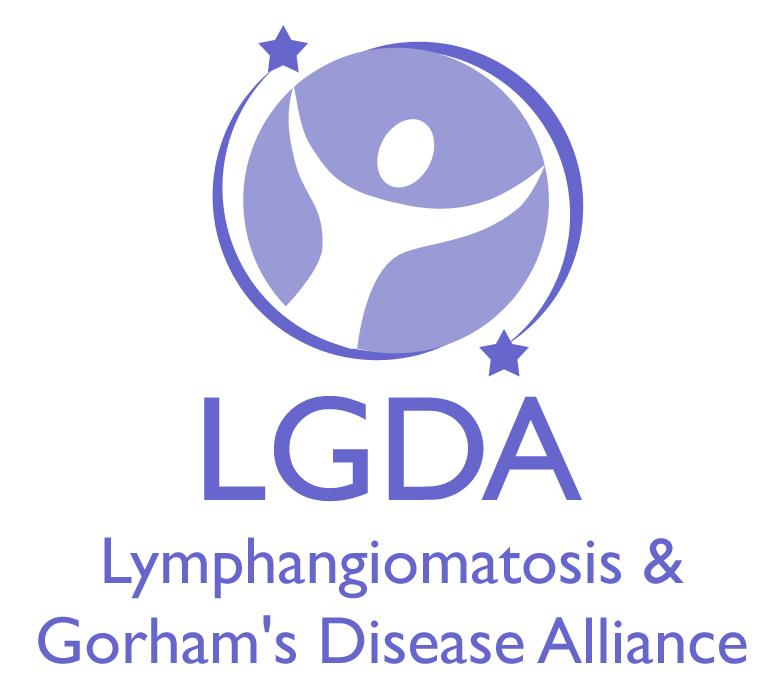Vasculata 2018
was
Supported in part by the: 
Vascular Biology
Newport, RI
October 14-18, 2018
Lymphatic Forum 2019
Austin, TX
May 31 - June 1, 2019
|

Shop at Amazon?
Help Support NAVBO
|
|
|
|
Vascular Biology 2018 - October 14-18 in Newport!
|
Abstract Deadline is less than a week away!
Vascular Biology 2018 will feature the
Vascular Inflammation Workshop and the
Biology of Signaling in the Cardiovascular System Workshop. Our new venue, in Newport, RI, is Gurney's Newport Resort and Marina located on Goat Island. Just a 10 minute walk from downtown Newport!
Plan now to attend! Go to
www.navbo.org/vb2018
for the meeting program, registration, abstract submission, award applications and more!
|
|
Vasculata 2018 in St. Louis
|
|
Another successful Vasculata!!
|
Sign up now for our August 2 Webinar with Michael Dellinger

Our webinar attendees requested a webinar on Lymphatics, so please join us on August 2 at 1:00pm EDT for Dr. Dellinger's presentation,
"Lymphatic Vessels and Vanishing Bones: Animal Models of Lymphatic Anomalies with Bone Involvement." Dr. Dellinger is an Assistant Professor at UT Southwestern Medical Center.
The webinar is sponsored by the Lymphatic Malformation Institute and the Lymphangomatosis & Gorham's Disease Alliance.

To register for the webinar please go to
http://www.navbo.org/events/webinars/718-webinar082018
|
|
LERN/NIH Seeks Lymphatic Researchers
|
Lymphatic Education & Research Network (LE&RN) is assembling a list of lymphatic researchers who are willing to serve on NIH Study Sections. NIH has identified the following three Study Sections that review lymphatic grant proposals:
Hypertension and Microcirculation (HM) Study Section reviews applications dealing with propulsion of lymph, lymphatic tone, and pathogenesis of lymphedema with more focus on functional studies; sometimes reviews applications about the lymphatic system in infection and inflammation depending on the outcome of research, namely whether focused on lymphatics or infection.
Immunity and Host Defense (IHD) and Innate Immunity and Inflammation (III) Study Sections may review applications that address lymphatic role in infection.
Cardiovascular Differentiation and Development (CDD) Study Section reviews applications involving lymphatic development, lymphangiogenesis, and lymphedema focusing on structure.
If you are willing to serve on one or more of the above-identified NIH Study Sections, pleasesend the following information to
[email protected]:
Name
Affiliation
CV
Study Section(s) on which you are willing to serve
In 50 words or less, your qualifications for each Study Section selected
|
Registration for Vasculata closes on July 20
Early bird registration ends:
Vascular Biology 2018 - August 15
Abstract Submission Deadline:
Vascular Biology 2018 - August 1
NAVBO Travel Awards are available for the following meetings:
|
|
Spotlight on Trainees
(from our July 12 issue)
|
MIT's Robert Langer offers encouraging tips for early-career scientists
Robert Langer, a member of the MIT faculty since 1977, has had a spectacular career by any measure: he holds an Institute Professorship at MIT, has more than 1,400 published articles and 1,300 patents to his credit, and has earned more than 220 major professional awards including the US National Medal of Science. These achievements, however, came after what he regards as an inauspicious start in convincing colleagues and research sponsors about the value of his ideas. In a
recent piece in PartneringInsight, Dr. Langer shares lessons gleaned from his early-career experience.
|
The Lab of Dr. Cynthia St. Hilaire
|
Welcome to our New Members:
Jorge Castorena-Gonzalez, University of Missouri
Dawid Chabowski, Medical College of Wisconsin
Omnia Gaafer, EVMS
Nicole Jacobsen, University of Missouri
Yitong Li, University of North Carolina at Chapel Hill
Gustavo Oliveira de Paula, Albert Einstein College of Medicine
Alec Schmaier, Brigham and Women's Hospital/BIDMC
Dawn Westhoff, Tulane University
Noosheen Walji, University of Toronto
Xingyan Zhou, Tulane University
|
|
Recent Publications by NAVBO Members
|
| Oscillatory Strain Promotes Vessel Stabilization and Alignment Through Fibroblast YAP-Mediated Mechanosensitivity
Advanced Science
Endothelial cells form the interior layer of blood vessels and, as such, are constantly exposed to shear stress and mechanical strain. Read more CORM-401 Reduces Ischemia Reperfusion Injury in an Ex Vivo Renal Porcine Model of the Donation After Circulatory Death
Transplantation
BACKGROUND: Carbon monoxide (CO) inhalation protects organ by reducing inflammation and cell death during transplantation processes in animal model. Read more Systemic Administration of Carbon Monoxide-Releasing Molecule-3 Protects the Skeletal Muscle in Porcine Model of Compartment Syndrome
Critical Care Medicine
OBJECTIVES: Acute limb compartment syndrome, a complication of musculoskeletal trauma, results in muscle necrosis and cell death. Read more Endothelial cells in the innate response to allergens and initiation of atopic asthma
Journal of Clinical Investigation
Protease-activated receptor 2 (PAR-2), an airway epithelial pattern recognition receptor (PRR), participates in the genesis of house dust mite-induced (HDM-induced) asthma. Read more Innate immune responses to trauma
Nature Immunology
Trauma can affect any individual at any location and at any time over a lifespan. The disruption of macrobarriers and microbarriers induces instant activation of innate immunity. Read more Role of complement C5a and histones in septic cardiomyopathy
Molecular Immunology
Polymicrobial sepsis (after cecal ligation and puncture, CLP) causes robust complement activation with release of C5a. Read more Roles of fibronectin isoforms in neonatal vascular development and matrix integrity
PLoS Biology
Fibronectin (FN) exists in two forms-plasma FN (pFN) and cellular FN (cFN). Read more |
Industry News (from our July 12 issue)
|
|
Medicine explored in its social context
The American Association of Medical Colleges has announced the program for its annual meeting, "
Learn Serve Lead 2018
," scheduled for early November in Austin, Texas. The meeting features an installment of the Voices of Medicine and Society series, including sessions that closely examine the current practice of medicine from a patient-centered viewpoint. Diverse stakeholders-medical school deans, hospital CEOs, university and hospital administrators, faculty physicians, scientists, researchers, physician residents, and students-are invited to think about ways that academic medicine can address its shortcomings and solve challenges that reach beyond clinical care.
Heightened risk for hypertension in African Americans
Data from the ongoing, prospective Coronary Artery Risk Development in Young Adults (CARDIA) study, initiated in 1985, reveals that African Americans face up to a 2-fold higher risk for hypertension compared to whites, regardless of their blood pressure levels in young adulthood. The recent report from Thomas et al. in the
Journal of the American Heart Association
noted that >75% of African Americans, male and female, are likely to develop hypertension (defined by the revised and
controversial 2017 AHA standards
) by age 55, while <55% of white men and 40% of white women were at similar risk. Body weight and diet were implicated as contributing factors, irrespective of race or gender.
Advances in non-viral genome targeting to reprogram cell function
Roth and colleagues at the multi-institutional Innovative Genomics Institute
report in Nature
novel methods to efficiently modify genes in cells of the immune system. The findings raise the intriguing prospect of new approaches to treat diseases, including cancer, infections like H.I.V., and autoimmune conditions, where defined and limited genetic alterations may produce therapeutic benefit. Existing virus-dependent methods of engineering lymphocytes for immunotherapy are limited by technical and temporal obstacles; these may be overcome with the new technique, by which both CRISPR-based gene editing tools and new genetic material are introduced into target cells subjected to electrical stimuli.
|
 |
Your data privacy and security are important to NAVBO. To that end, we have updated our privacy policy to reflect recent privacy and security regulation implementations and changes.
Please review our policy as time permits so you have a complete understanding of the data we have, why we have it, and how we use it.
Part of the updates relate directly to the European Union's new General Data Protection Regulation (GDPR) that went into place May 25. The GDPR seeks to improve the transparency of data usage and give end users more control over their own data. We believe these changes are important and will be compliant with the GDPR regulations.
Contact NAVBO if you have any questions or to
change your communication preferences.
Please note, you can unsubscribe to this newsletter at anytime by clicking on the SafeUnsubscribe in the footer.
|
|
|